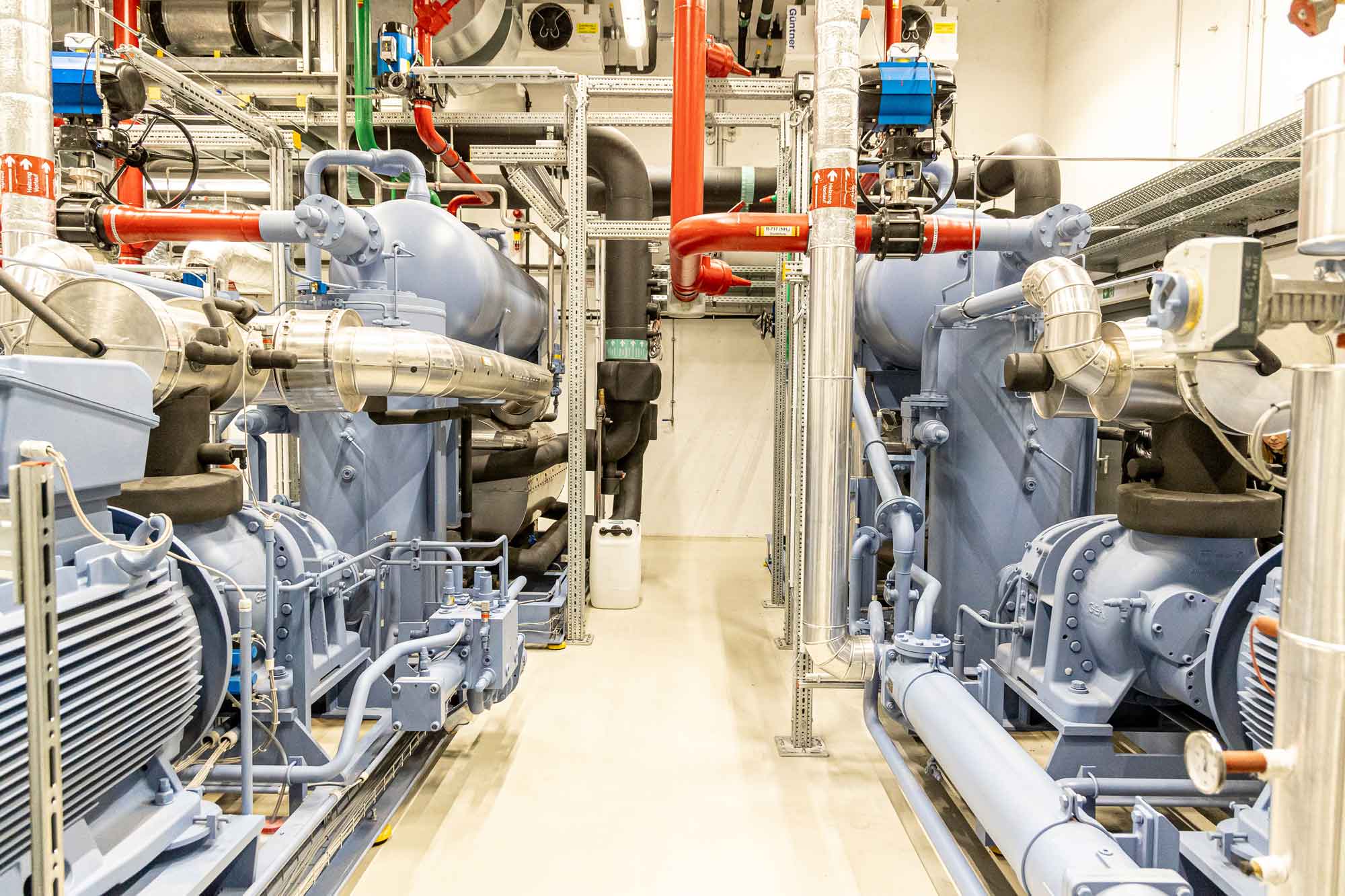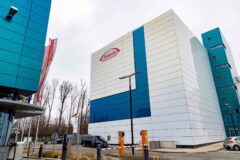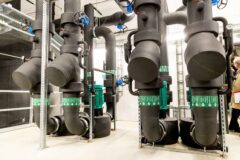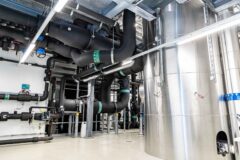The provision of process heat is a key issue when it comes to the transformation of industry towards climate neutrality. Many branches of industry need heat in the form of hot air or steam at high temperatures for various production steps.
Veronika Wilk and her team at the Austrian Institute of Technology (AIT) conduct research into the decarbonisation of thermal processes in industry. Her work includes analyzing waste heat potential and the question of how renewable heat can be used efficiently and repeatedly in the production process. Heat pump technology, which is still not widely used in industry, could be part of the solution. “Our research relates to the area of high-temperature heat pumps because industrial utilisation calls for temperatures above approx. 100 degrees”, explains the head of the “Efficiency in industrial processes and systems” research field at AIT. “In the last ten years, there have been important developments to increase the temperature level. Finding the right materials, such as suitable refrigerants or compressors that can withstand these high temperatures, is essential. It is also very important to cooperate with industry and prove the reliability of the new technology with as many operating hours as possible.”
Veronika Wilk grew up with renewable energy technologies as her father worked in the photovoltaic sector and renewable energy was also subject to a lot of discussion at school. Her interest in environmental protection and renewable energy sources motivated her to study chemical engineering – a combination of mechanical engineering and technical chemistry, with a focus on large technical plants. “I wrote my thesis on the topic of gas generation from waste and residual materials, which is a very exciting topic that addresses energy and resource efficiency”, says Wilk. “After graduating, I worked as a postdoc researcher at TU Wien before joining AIT in 2014. It was very important to me to continue in applied research and work on the latest developments. The key topic of energy and resource efficiency still concerns me today, but now from a slightly different perspective – now it’s about solutions for CO2-neutral heat supply in industry.”
High-temperature heat pump for a Vienna-based pharmaceutical company
The current AHEAD project1 involves developing and demonstrating an innovative solution for supplying heat to processes at the pharmaceutical company Takeda. The high-temperature heat pump system utilises waste heat from the cooling process to produce steam and relies on heat pumps with natural refrigerants and steam compressors. The system consists of a steam-generating heat pump from SPH Sustainable Process Heat, which is adapted for the use of natural refrigerants and combined with steam compressors to generate steam at 11 bar(a)/184°C.
The AHEAD system is designed to meet the requirements of the pharmaceutical company, but can be expanded for temperatures of 200-260°C without requiring further development. Veronika Wilk and her team at AIT are developing an optimised operating strategy aimed at running the AHEAD system with minimal energy requirements. The system is scheduled to go live in early 2025. “We will then continue to scientifically monitor the operation together with the heat pump manufacturer to see whether the system is working as efficiently as we expect it to do. We will also be working on the control and further optimisation of the system as part of the project scope”, explains the project manager.
Global pharmaceutical manufacturer Takeda aims to have its facilities operating with net-zero greenhouse gas emissions before 2035. The AHEAD project is an important milestone on the road towards this objective. The high-temperature heat pump has the potential to generate steam that is virtually CO2-neutral in over seven months, which represents a saving of 1,600 tonnes of CO2 each year. A concept aimed at implementing the AHEAD system at other Takeda sites in Vienna and worldwide is also being developed as part of the project. The decarbonisation potential of the technology in other sectors (paper, chemicals and petrochemicals as well as food) is also being investigated. The demonstration project will thereby serve as a practical test for Austrian industrial companies from various sectors.
The innovative concept received the Mission Innovation “Net-Zero Industries Award Austria” in the “Outstanding Project” category in 2023.
> Design of the the heat pump and plan of the on-site integration at Takeda
> Test bench trials
> Installation of the AHEAD system
> Creation of a system model for optimised operation
> Commissioning of the system
> Evaluation of the AHEAD system after 4,000 operating hours
> Concept for the roll out of the system
> Determination of the decarbonisation potential for Austria
1 Project consortium: AIT Austrian Institute of Technology, SPH Sustainable Process Heat GmbH, Takeda Manufacturing Austria AG
he AHEAD project is part of the NEFI (New Energy for Industry) innovation network, which promotes the decarbonisation of industrial companies through innovation and technology development. www.nefi.at/en




